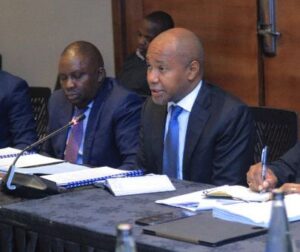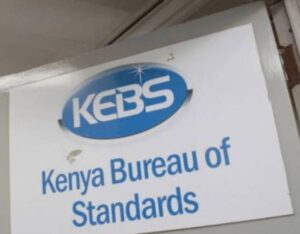The Cabinet Secretary for National Treasury and Economic Planning, John Mbadi has reaffirmed the plans of the government to support the petroleum sector to boost the economy.
He said this while addressing key stakeholders in the petroleum industry during the second quarter of 2025 briefing organized by the Petroleum Institute of East Africa (PIEA), whereby he used the platform to applaud them for the good work they are doing in terms of creating job opportunities, which have helped to generate taxes for the country.
“We appreciate the role of PIEA in economic development within Kenya and the East Africa Community,” said the CS. He also stated that through PIEA, more jobs have been created, tax generated, and an increase in the production of oil and gas in the region.
Likewise, the CS also talked about the progress of the country’s economy, whereby he articulated that there is a significant growth of 5.2 percent between 2023 and 2024, which surpasses both the global and Sub-Saharan average growth rates of 3.3 and 3.8 percent respectively.
ALSO READ: Kenya Airways Set to Restore Grounded Dreamliner to Service
He also added that these achievements are a result of strategic policy decisions and a resilient economic foundation. However, despite the positive traits mentioned above, CS Mbadi asserted that factors like external shocks, fiscal constraints, and structural weaknesses in the economy can be a major jeopardy to economic growth.
“Domestically, the country is grappling with a shrinking fiscal space, as the public debt ratio stands at 69.7 percent of GDP,” stated Mbadi.
He added that public debt consumes 63 percent of ordinary revenue, stating that interest costs have become the single largest recurrent expenditure item, exceeding even salaries and county allocations.
On the other hand, the CS blamed global pandemics as the main causes of rising inflation and supply shortages, which have contributed to the rise in the cost of essential commodities such as edible oils and fertilizers.
CS Mbadi also stated that the budget for 2025/26 was mainly crafted to help in establishing the recovery of macroeconomic stability, citing a significant drop in inflation from a peak of 9.6 percent in October 2022 to 3.8 percent in May 2025, accompanied by a decline in prices of basic foodstuffs and energy.
Despite this, the CS stated that the strength of the shilling has appreciated from Sh159.7 to Sh129.3 to the US dollar, while approving that foreign reserves have reached $10.5 billion, equivalent to 4.7 months of import cover.
On reforming government-owned enterprises, the CS stated that the proposed GOE Bill 2025 would restructure about 60 commercial state entities to operate under the Companies Act, enabling them to make profits thus shifting them from state-driven to private-driven sectors.
He also confirmed plans to list Kenya Pipeline Company (KPC) on the Nairobi Stock Exchange through an Initial Public Offering (IPO), a move that is expected to reduce pressure on public finances and stimulate economic efficiency.




